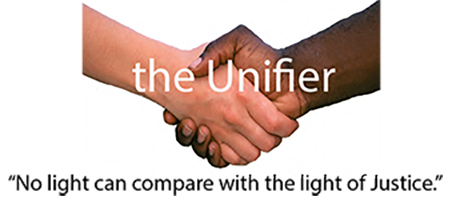I named this post “Old Testament vs. New Testament” because from my point of view these two set of religious books represent a true dichotomy of human nature. The contrast between them can be summed up by viewing the following two quotes. The first quote is from the book of Deuteronomy, 20:10 – 20:13 in the Old Testament.
When thou comest nigh unto a city to fight against it, then proclaim peace unto it. And it shall be, if it make thee answer of peace, and open unto thee, then it shall be, that all the people that is found therein shall be tributaries unto thee, and they shall serve thee. And, if it will make no peace with thee, but will make war against thee, then thou shalt besiege it: And when the Lord thy God hath delivered it into thy hands, thou shall smite every male thereof with the edge of the sword.
Based on religious writings like this one, one might think that violence is an innate characteristic of Homo sapien. It certainly seems that way if even our so called sacred text instructs people to act like the beasts of the field. If I might take a moment to put this quote into my own words.
If you make aggressive military advances towards another people, they have only two choices – surrender, in which case you will become their overlord, meaning you will tax them and make them live by your commands. Sort of like an organized crime family extorting protection money from a small businessman. And, if they choose to fight for their freedom and against your tyranny then you will show no mercy. If you happen to win the war you started, then you will kill all the men and enslave the women and children. Oh, and you will take everything they own, at least everything of value.
But, maybe violence and warfare are less about nature and more about nurture.

In other words, it’s not about what’s in our genes and is more about what we’ve been taught. If it is a learned behavior then it makes sense that it can be unlearned.
Yet, even if learned, past behavior has always been a strong indicator for future possibilities. Us humans rely heavily on the belief that the past determines, or at least, predicts the future. Every HR Recruiter at every company believes that how you behaved at your last job is how you will behave at their company. That’s why they have developed the behavioral questions that so many people hate. For instance, “Tell me about a time when you had conflicting deadlines, how did you resolve the problem?” or “Tell me about a time when you had an employee that didn’t get along with his teammates, what did you do?” At the heart of the issue, they don’t care what you did in your past job, but they know that situations like what you faced in the past may happen at their company and they want to know how you are going to deal with them. Your past behavior is an indicator of what you will do again.
The only problem with this thought is that it doesn’t account for the fact that you are now an older, more experienced, person or that their company is a different environment than the other company. Maybe, you dealt with a situation poorly and learned a hard lesson from the results. Possibly, your supervisor at that old company was easy to work with and many of your actions and reactions were tailored to that social environment. Your new supervisor, if you get the position, might be a real nightmare to work for, in which case, your actions will probably be different than what you did in the past.
So, what does this have to do with violence as an innate characteristic of humanity? Well, the point is, just because we have five thousand years of recorded history in which humanity is constantly violent doesn’t prove that humanity will forever remain violent. A baby must have it’s mother’s milk or a liquid formula for the first few months of its life, but that doesn’t mean that a human will need a liquid diet throughout its life. Many children and adolescents are rash and irresponsible, frequently not giving thought to their own safety, but many of those children and adolescents become mature and responsible adults whose actions are quite different from those adolescent actions that once defined them. Nothing lasts forever, that is the immutable law of the universe. Change is the only thing we can count on continuing.
There’s an old saying that several cultures seem to have in their ancient stories. The central idea is this – there are two wolves, or bears or snakes, you choose – that exist inside of you. One bear is kind, truthful, friendly, loving, etc.
The other bear is mean, brutal, untrustworthy, etc. These two bears constantly fight one another for control of you. The question put to the storyteller is, “So, which of the bears win?” And, the storyteller replies, “Whichever one I feed the most.”

If humanity is violent it is because we have been feeding the violent bear, and we have been feeding it for a long time, indeed for centuries. Will we continue to feed the violent bear, or will we exercise our free will and begin to feed the kind bear. Planet wide peace is possible, if we feed it.
The trick is, we’ve been feeding to bad bear for so long now, we no longer have to put any effort into it. It seems to come naturally for us to turn to violence. On the other hand, it’s hard to believe in, and act for, peace. Faith is a difficult trait to have. Faith is what we need to possess when reason tells us that humanity is violent and will always be violent.
Violence can manifest itself in many forms, not just war between nations. Spanking your child used to be more acceptable than it is today. Attitudes are changing because more and more people are seeing the violence in the act and they no longer want to set that form of violence as an example to their children. Fights on the school yard, domestic abuse, abuse of the elderly, bullies at school and/or work, bar fights, nations waging war, genocide, all of these things are forms of violence.
The second quote is from Paul’s letter to the church in Rome, simply called the book of Romans in the New Testament.
12:18 If it is possible, as far as it depends on you, live in peace with everyone. The peace to calm my heart when I go through the storms of life. The peace that stays with me in turbulent waters. I pray for a healthy mind and that your perfect peace be developed in my life. I now believe and trust that you are faithful to cause these things to happen in my life. In the name of Jesus, I pray.

On the opposite hand is peacefulness, and this quote is particularly appropriate to illustrate my point because the peace being put forth is an individual peace. It is a peace of heart or of soul, and this is where global peace must begin – in the hearts and minds of individual people.
In upcoming posts I want to look at some of the causes of violence, particularly war, and ask the question “Even if there is no active war, is that peace?” What about “Cold War.” What role does the idea of “Limited Resources” play in warfare. In some ways is “limited resources” the same concept as a husband and wife fighting over who gets the keys to their only car? Before we leave the post however, I’d like to mention to concept of “otherness.” This idea has surfaced in other posts and will probably show up in future posts because it is a fundamental concept that must be dealt with if we are to achieve peace. I’ll end with this question, “Am I actually my brother’s keeper?”


